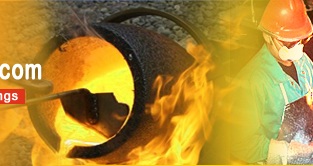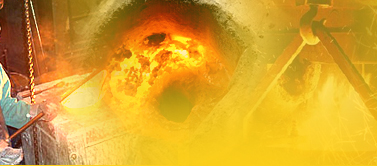Introduction: A method of plaster molding in which a plaster-water mixture is poured over a pattern, after which the mold is steam-treated, allowed to set in air, dried in an oven, and

cooled for use in casting certain alloys.
Process: Molding in the Antioch process is done with a mixture of sand, gypsum, asbestos, talc, sodium silicate, and water, sand being the bulk ingredient and gypsum being the binder. The slurry is poured around the pattern in suitable flasks or metal core boxes, after standing for 6 hr, the molds are assembled and autoclaved in steam and dried in air. The molds are finally put in oven. The advantage of plaster molds are that nonferrous casting can be made with good surface finish and dimensional accuracy. Tolerance of +0.055 in. on small casting and +0.015 in. on large castings such as rubber-tire molds can be obtained. Metallurgical quality in aluminum castings is also claimed for Antioch process, because metal chills can be embodied in the mold.
A method of plaster molding in which a plaster-water mixture is poured over a pattern, after which the mold is steam-treated, allowed to set in air, dried in an oven, and cooled for use in casting certain alloys.
When baking the casting mold just the right amount of water should be left in the mold material. Too much moisture in the mold can cause casting defects, but if the mold is two dehydrated it will lack adequate strength.
The fluid plaster slurry flows readily over the pattern, making an impression of great detail and surface finish. Also due to the low thermal conductivity of the mold material the casting will solidify slowly creating more uniform grain structure and mitigating casting warping. The qualities of the plaster mold enable the process to manufacture parts with excellent surface finish, thin sections, and produces high geometric accuracy.
 Application:
Application: Plaster mold casting is a manufacturing process having a similar technique to sand casting. Plaster of Paris is used to form the mold for the casting, instead of sand. In industry parts such as valves, tooling, gears, and lock components may be manufactured by plaster mold casting.
Advantages:
- More uniform grain structure is created
- More intricate disigns can be made.


